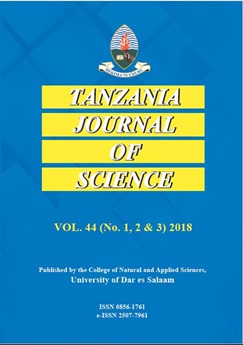A trans influence and π-conjugation effects on ligand substitution reactions of Pt(II) complexes with tridentate pendant N/S-donor ligands
Abstract
The rate of displacement of the chloride ligands by three neutral nucleophiles (Nu) of different steric demands, namely thiourea (TU), N,N ' -dimethylthiourea (DMTU) and N,N,N, ' N-tetramethylthiourea (TMTU) in the complexes viz; [Pt(II)(bis(2-pyridylmethyl)amine)Cl]ClO4, (Pt1), [Pt(II){N-(2-pyridinylmethyl)-8-quinolinamine}Cl]Cl, (Pt2), [Pt(II)(bis(2-pyridylmethyl)sulfide)Cl]Cl, (Pt3) and [Pt(II){8-((2-pyridylmethyl)thiol)quinoline}Cl]Cl, (Pt4) was studied under pseudo first-order conditions as a function of concentration and temperature using a stopped-flow technique and UV-Visible spectrophotometry. The observed pseudo first-order rate constants for substitution reactions obeyed the simple rate law. The results have shown that the chloro ligand in Pt(N^S^N) complexes is more labile by two orders of magnitude than Pt(N^N^N) complexes due to the high trans labilizing effect brought by the S-donor atom. The quinoline based Pt(II) complexes (Pt2 and Pt4) have been found to be slow than their pyridine counterparts Pt1 and Pt3 due to poor π-acceptor ability of quinoline. Second-order kinetics and large negative activation entropies support an associative mode of activation.
Key words: Substitution, nucleophiles, pseudo first-order, associative, entropy


